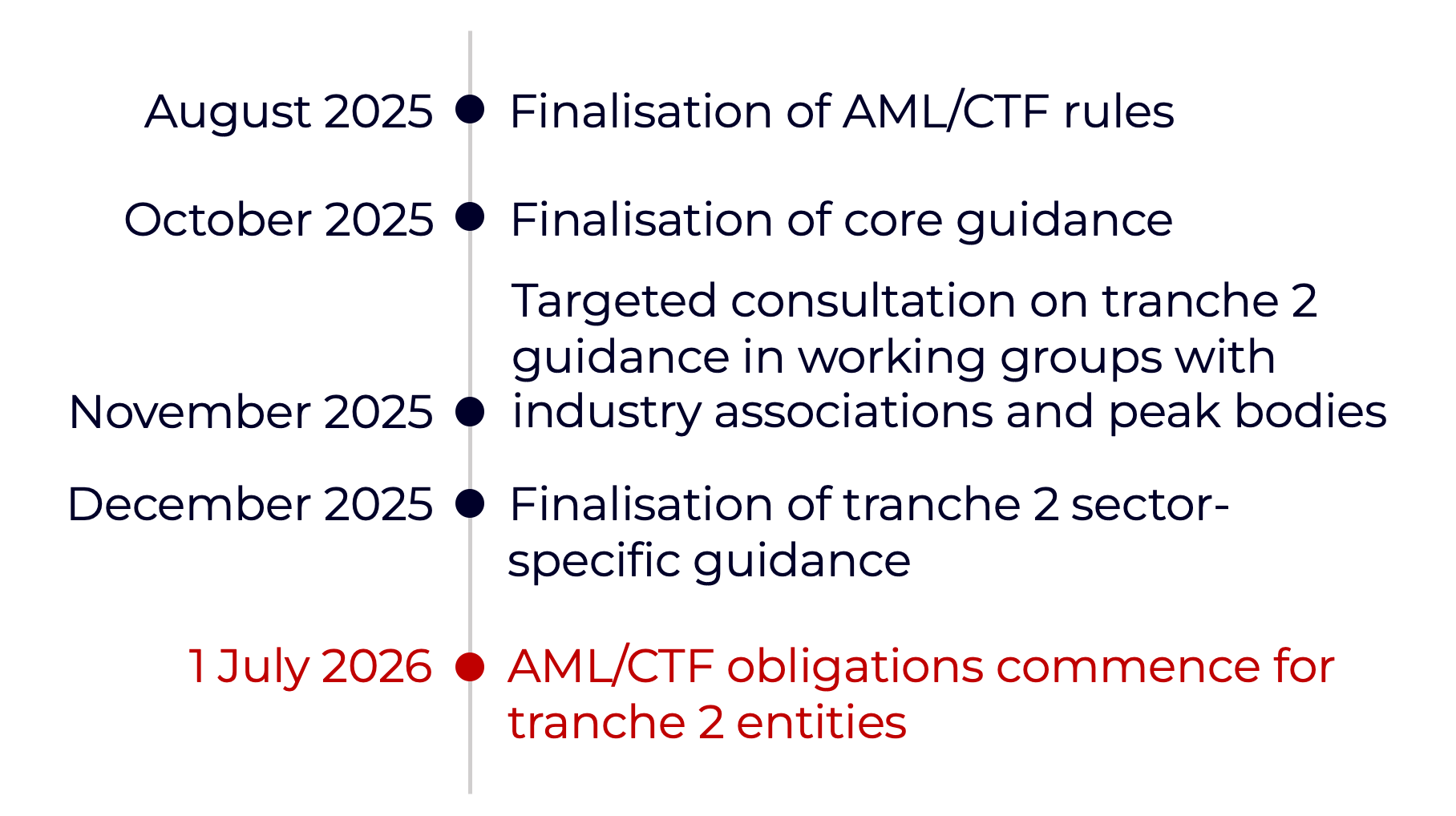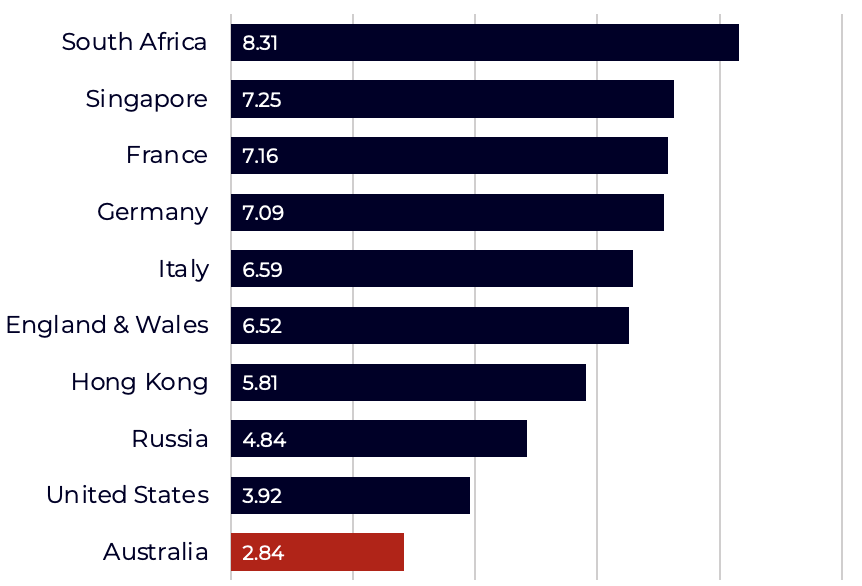.png)


The Australian Government is expanding its anti-money laundering and counter-terrorism financing (AML/CTF) framework to include more industries. These changes, commonly referred to as Tranche 2, will soon bring real estate agents, lawyers, accountants, and professional services providers into scope.
This means that businesses providing certain services will need to understand their financial crime risk exposure and put procedures in place to identify and report suspicious activities in a similar way to financial institutions.
We've been helping financial institutions fight financial crime for decades. Now we're keen to help small businesses protect communities too.
To achieve this we're going to deliver a comprehensive solution that puts compliance on auto-pilot without disrupting your business. Learn more.
The Australian Government original AML/CTF regime was defined in 2006 and focused mostly on the financial sector. To align with Financial Action Task Force (FATF) standards and reduce the risk of Australia being "grey-listed" by FATF the regime is being expanded to more businesses.
The AML/CTF regime helps businesses identify risks and prevent or disrupt criminal activities. It also provides law enforcement with valuable intelligence in the fight against serious and organised crime. This helps to protect the Australian community and businesses from serious harm.
Financial sector
Gambling sector
Bullion dealers
Real estate
Legal sector
Accounting
Company/trust services
The Anti‑Money Laundering and Counter‑Terrorism Financing Amendment Act 2024 was passed in Australian Parliament in late 2024 and is now in effect.
Australian Transaction Reports and Analysis Centre (AUSTRAC) - the AML/CTF regulator - is currently undertaking consultations and preparing final rules and guidance. The new obligations will apply to tranche 2 businesses from 1 July 2026.

Money laundering enables serious crimes like child exploitation, trafficking, terrorism, and weapons proliferation. In Australia, up to A$15 billion is laundered each year, with over A$1 billion through real estate alone.
Australia is among the least transparent economies globally, with the IMF ranking its property market the second riskiest. Tranche 2 reforms are necessary to protect the integrity of Australia’s financial and real estate systems.

Tranche 2 reforms introduce a significant number of new obligations across business governance, operations, and other functions. While some may appear similar to other controls or processes already in place, they are often more broad and require additional steps or considerations.
It's important for businesses entering the AML/CTF regime to clearly understand the scope of new obligations to ensure compliance and avoid costly fines and reputational damage.
Enrol as reporting entity with AUSTRAC
Appoint a Compliance Officer
Develop & maintain AML/CTF program fit for your business
Assess your organisation ML/TF risk and implement apprioprate controls
Asses risk of new hires and provide employee training
Conduct customer due diligence including risk assessment, identification of beneficial owners and sanctions screening
Conduct enhanced due diligence for high risks customers which includes additional checks and management approval
Report suspicious matters and certain activities
Conduct ongoing due diligence for long term customer relationships and monitor their transactions
Keep records of the relevant information and processing details
Conduct regular internal reviews & independent audits of your AML/CTF program and procedures
Implement feedback provided by AUSTRAC

